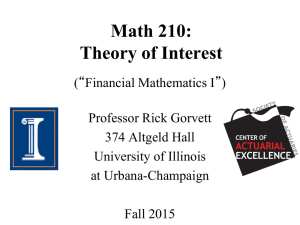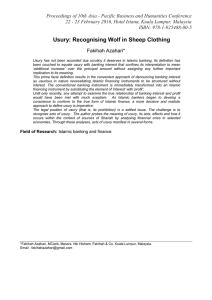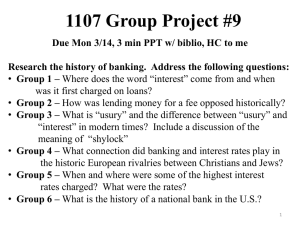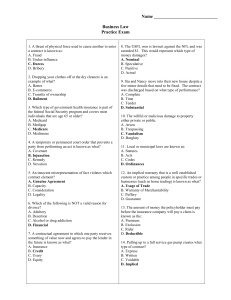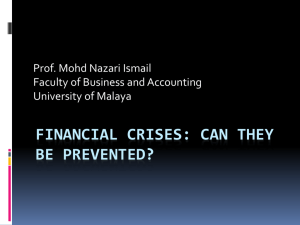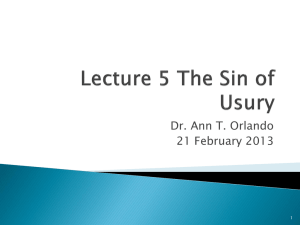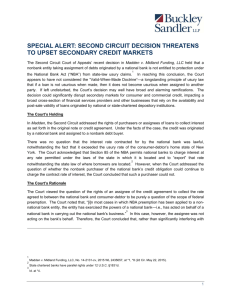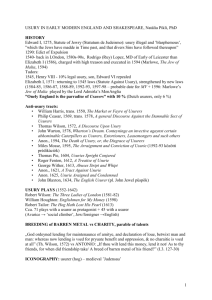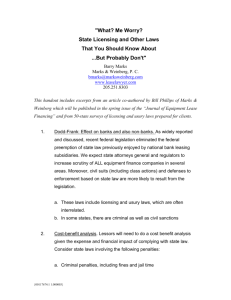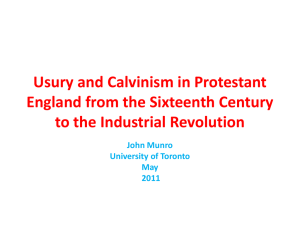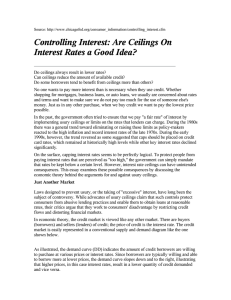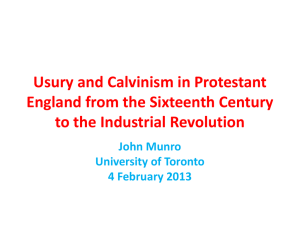Day 1 Slides - University of Illinois at Urbana
advertisement
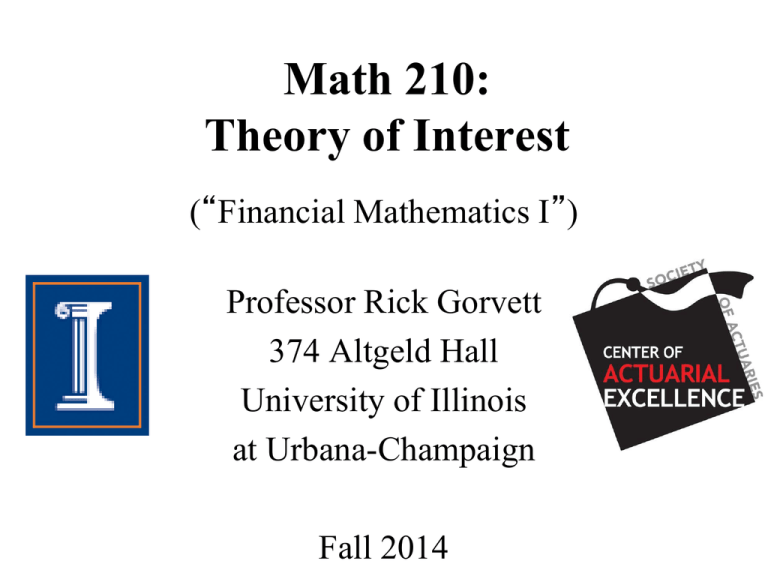
Math 210: Theory of Interest (“Financial Mathematics I”) Professor Rick Gorvett 374 Altgeld Hall University of Illinois at Urbana-Champaign Fall 2014 Syllabus • Office Hours: 3-4 pm Tuesdays, 3-4 pm Wednesdays, or by appointment • Textbook: Mathematical Interest Theory by Vaaler and Daniel (2009, 2nd Edition) • Exam dates: 3 exams, per syllabus • Grades: Exams, homeworks, other assignments Me • Director of the UIUC Actuarial Science Program • MBA (University of Chicago) • Ph.D. in Finance (UIUC) • FCAS: Fellow of the CAS • ASA: Associate of the SOA (I wish) • CERA: Chartered Enterprise Risk Analyst • Actuarial corporate / consulting experience Class Objectives • Understand the mathematical foundations of finance • Learn Exam 2 / FM material • Appreciate this material in a broad, crossdisciplinary framework Motivation for the Theory of Interest • Borrowing and investing – There is a “price” associated with such transactions – I borrow $1 from you for one day; how much do you want in return? – What about borrowing for 1 year? 5 years? 10 years? – What about borrowing $10? $100? $1,000? $10,000? Motivation for the Theory of Interest (cont.) Time Horizon 1 yr $ Amount 5 yrs 10 yrs… 1 10 100 1,000 10,000 Increasing “Charge” Definitions of “Interest” • “Interest may be defined as the compensation that a borrower of capital pays to a lender of capital for its use.” – Kellison, The Theory of Interest, p. 1 • Interest is “the time value of money” – Broverman, Mathematics of Investment and Credit, p. 1 • “Cost of using money.” – Dictionary of Finance and Investment Terms, p. 203 Historical / Cultural Context • “And if your brother becomes poor…. you shall not lend him your money at interest.” – Old Testament, Leviticus 25:35-37 • “You shall not lend upon interest to your brother…. To a foreigner you may lend upon interest, but to your brother you shall not lend upon interest.” – Old Testament, Deuteronomy 23: 19-20 Historical / Cultural Context • “The most hated sort (of wealth-getting), and with the greatest reason, is usury, which makes a gain out of money itself, and not from the natural object of it. For money was intended to be used in exchange, but not to increase at interest.” – Aristotle, Politics Book 1, Ch. 10 • “Usury”: lending money at an unreasonably high interest rate Historical / Cultural Context • “(A group)…. systematically increased its wealth by usury in defiance of a law passed by Caesar the Dictator…. First, the Twelve Tables prohibited anyone from exacting more than 10% when, previously, the rate had depended on the caprice of the wealthy. Subsequently,…. interest was reduced to half that amount, and finally compound interest was wholly forbidden.” – Tacitus, The Annals Book 6, Ch. 16 Historical / Cultural Context • “…. you may avoid usury by a simple shift of the intention. ‘It would be downright usury,’ says he, ‘to take interest from the borrower, if we should exact it as due in point of justice; but if only exacted as due in point of gratitude, it is not usury….’ ” – Pascal, Provincial Letter VIII Historical / Cultural Context • “The lowest ordinary rate of interest must…. be something more than sufficient to compensate the occasional losses to which lending, even with tolerable prudence, is exposed.” – Adam Smith, The Wealth of Nations Historical / Cultural Context While studying, especially for actuarial exams, keep in mind a quote: • “Do you think that you shall enter the Garden of Bliss without such trials as came to those who passed away before you?” – Joseph Campbell, The Power of Myth – quote from the Quran (Koran), Data per FRED, St. Louis FRB, for 3-Month T-Bills, Secondary Market In This Class… • We tend to refer to the (one) interest rate – In reality, there are many interest rates • We tend to assume interest rates do not change – In reality, interest rates are stochastic Typical Interest Theory Problem • Four quantities • If you know three, you can determine the fourth 2 1) Initial value 2) Interest rate 3) Time period 4) Final value 1 4 3 Next Time… • Begin discussing interest rates • Accumulation and amount functions • Simple versus compound interest • Effective versus nominal interest
